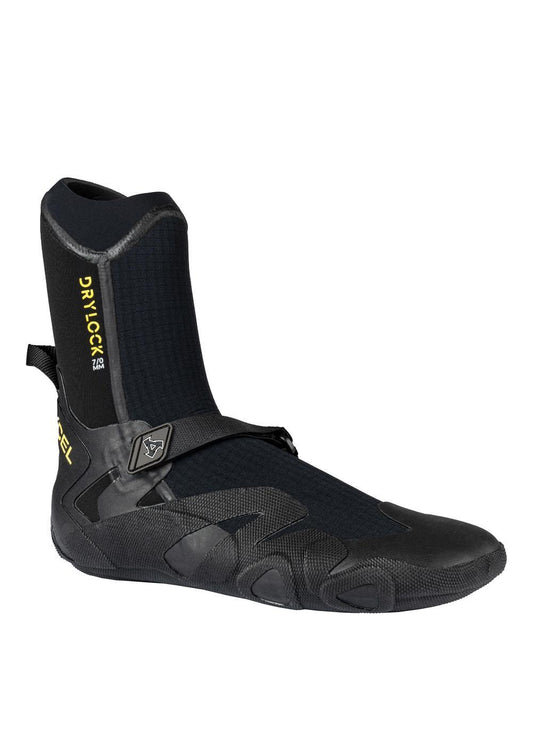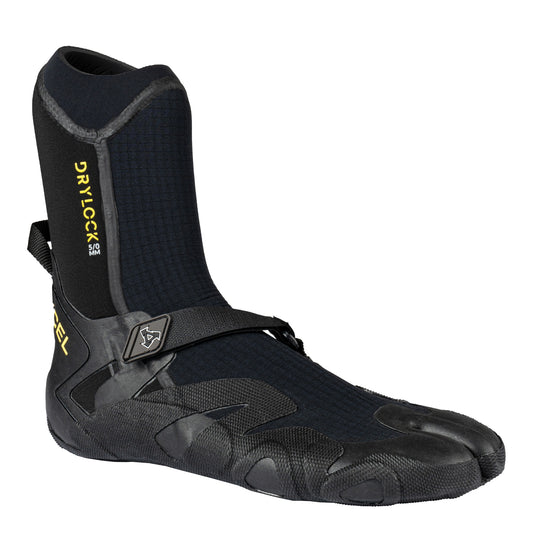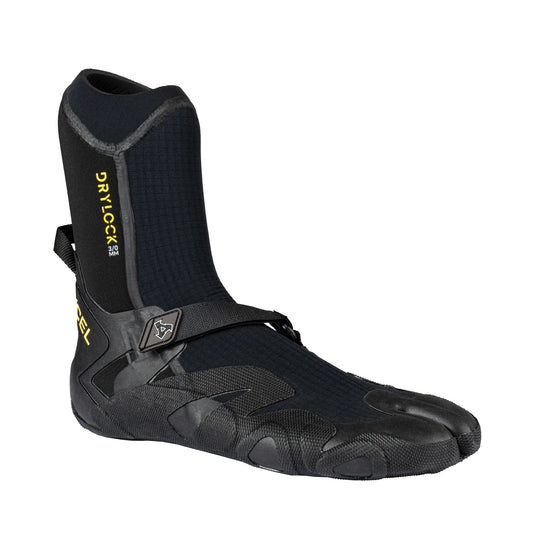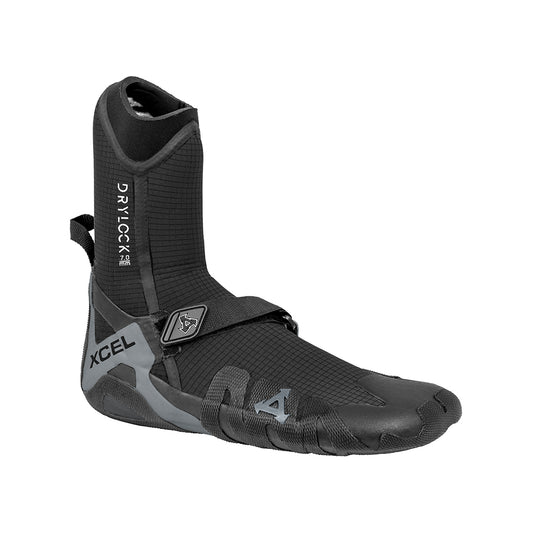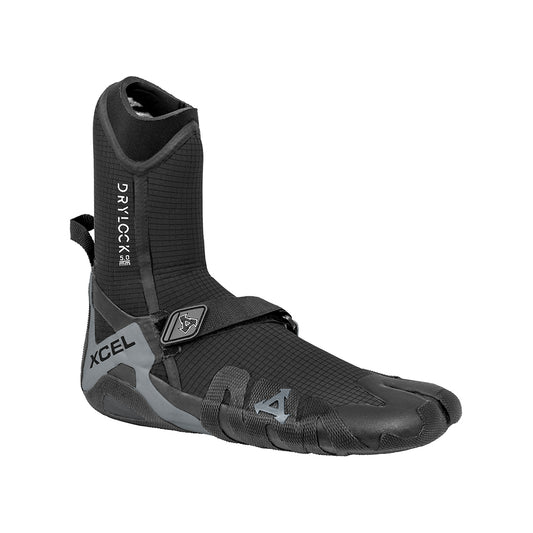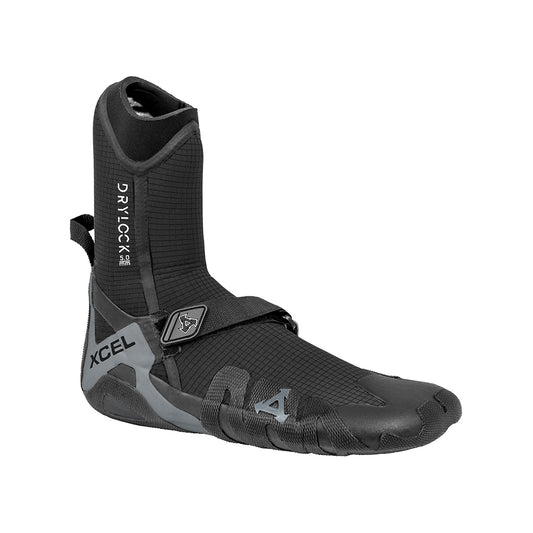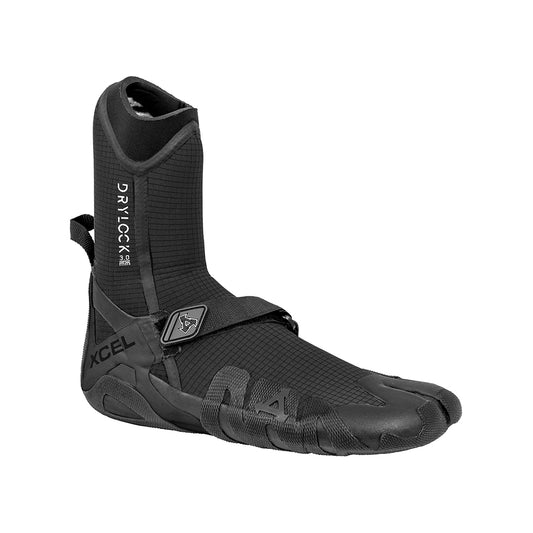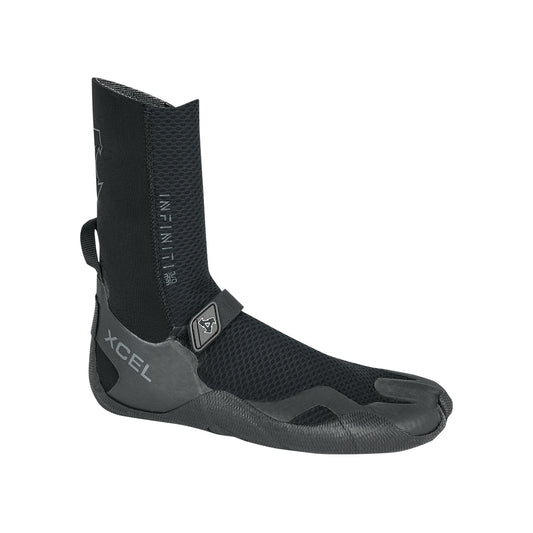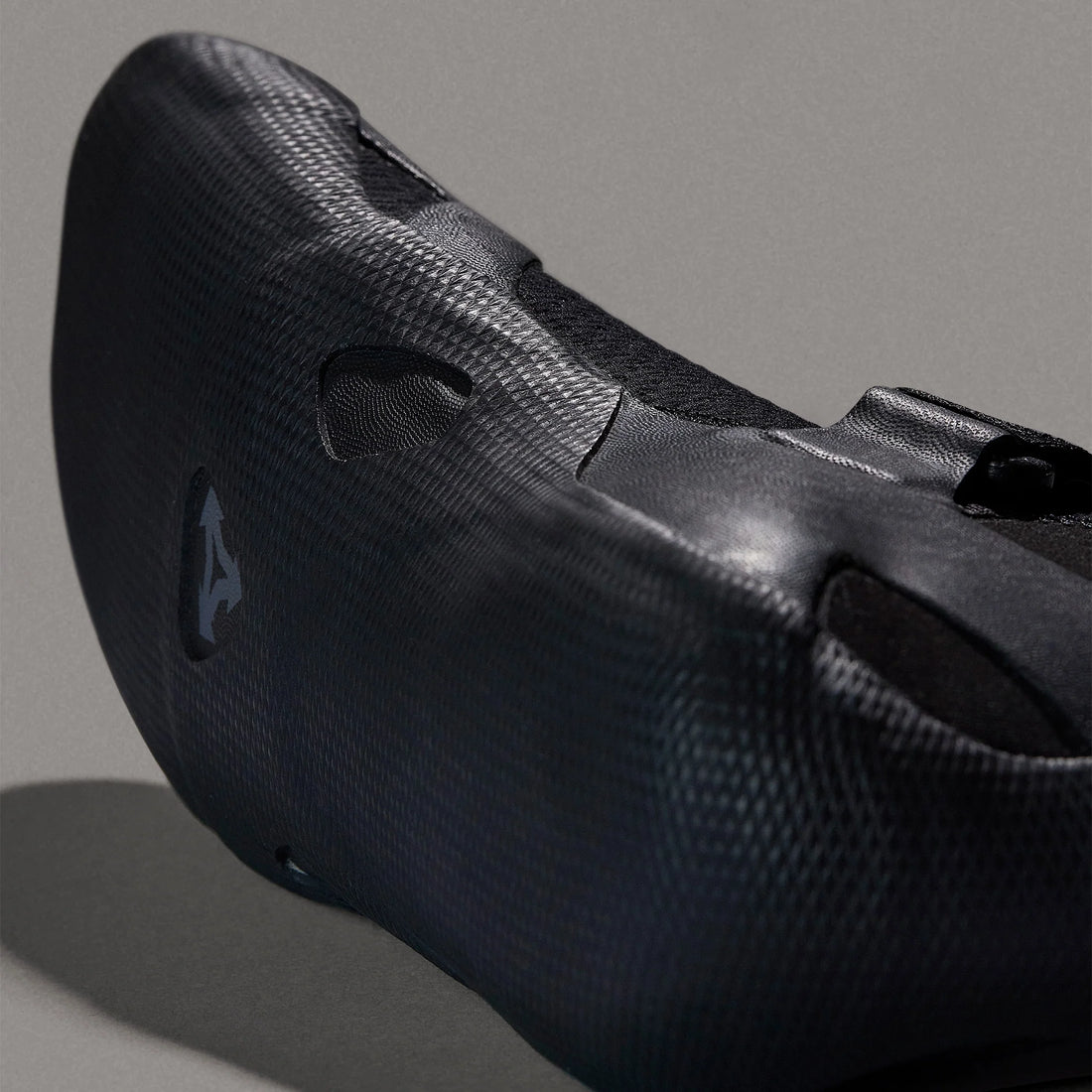
How to Buy Wetsuit Boots
Share
When surfing in cold water, just having a wetsuit sometimes isn’t enough. Many surfers find wearing boots will help them stay out longer and provide extra traction on those frigid days. The right wetsuit boots may be the difference between a good session in cold water or a bad one; no matter how warm and responsive your wetsuit may be. But with a wide variety of boots to choose from it can sometimes be hard to know which one might be right for you.
The following guide will help you choose the best boots that suit the conditions and your surfing style.

Thickness
Xcel boots range in thickness from 3mm to 5mm to 7mm. The thicker the boot, the warmer it will be; but the trade-off is that more material is harder to maneuver and will be less responsive. Your bare foot is always the most responsive, but in the winter that becomes a bit more difficult.
The key is to find a sweet spot that works for the conditions and your demands for responsiveness. As a general rule of thumb you should consider wearing boots when the water gets below 55F, starting with a 3mm boot. For water around 50F you’ll be considering a 5mm boot, and when the water is 45-50F or below you are most likely going to want a 7mm boot.
Size/Fit
The right fit will make all the difference between a long session and a short one. Not only will the right size provide optimal warmth and protection, you will also surf better if your foot isn’t moving around inside the boot. Pay close attention to the heel and toe area where a snug fit will be important - but make sure it’s not so snug it cuts off circulation and makes the foot go numb. This can also be from over tightening the boot, so be sure to test the boot in shallow water before paddling out.
Straps
Some boots have straps, giving even more of a tight fit that can help prevent water from getting in. Again, it’s possible to over-tighten, but the right amount of pressure on the foot will help with both warmth and comfort.
Sole
Some soles have traction underneath, and others do not. It depends on whether you would like the entire surface area of the boot to be touching the board, or if some traction padding underneath is more important to ensure less chance of slipping. Some boots also have added thickness on the sole, which can add in an extra layer of warmth, but also be more difficult to feel the board underneath.
Lining
Lining can provide an extra layer of protection on the feet. If your feet get cold easily, it might be a good idea to ensure the boots have some lining inside to help keep warm.
Toe Shape
Round Toe:
A round toe allows the whole foot to be in one contained unit. There is no separation between the toes which can allow for better blood flow and warmth; however some people find it to be a bit more difficult to maneuver on the board.
Split Toe:
Split toe boots provide a more responsive fit, allowing for the foot to have increased grip and responsiveness up front. The sacrifice here can be warmth since not all toes are together. However, since each side of the split has at least a couple toes together, there is always a neighbor keeping at least one other toe warm from the inside.
We have been designing wetsuit boots for decades, resulting in a full array of boots to choose from based on your riding style and budget. From our entry-level Axis series, to our all-around Infiniti, there is something for everyone. If you absolutely, positively want the best, then the Drylock series is for you. This is our premier line of boots and wetsuits and we go all-out to ensure you have the best warmth, comfort, and performance.
The Drylock boots also feature our Drylock Cuff opening to prevent flushing, and an ergonomic strap keeps the heel in place. It also features a heel strap for easy pull up. How to wear your boots So you’ve found the right boots, and now it’s time to put them on.
One common mistake people who haven’t worn boots is that they put the boots over the wetsuit. Instead, roll up the bottom of the wetsuit, put the boots on, then roll the wetsuit down on top of the boots for the best fit. This will ensure that the water doesn’t fill up from the cuff of the boots.

